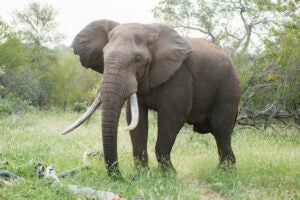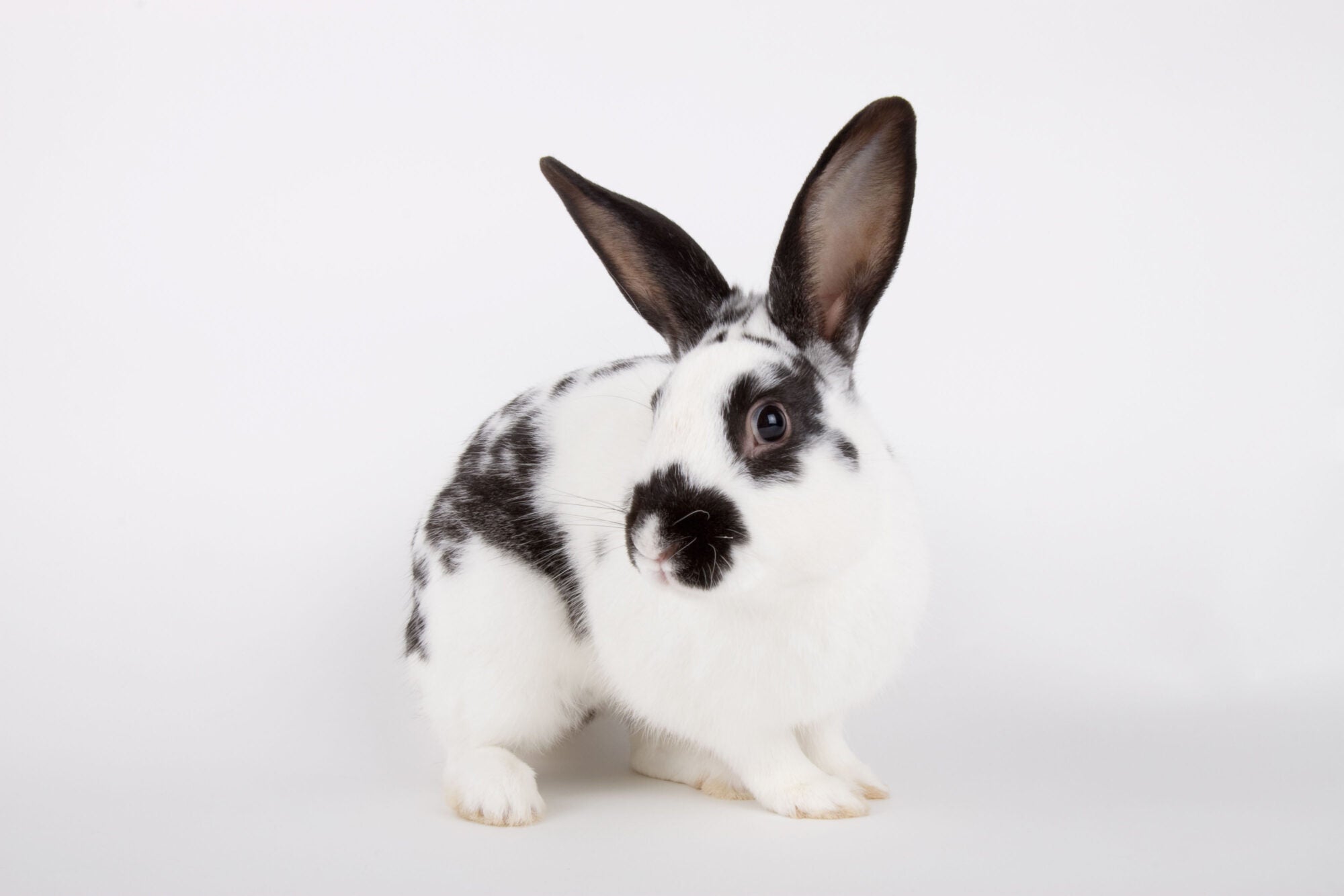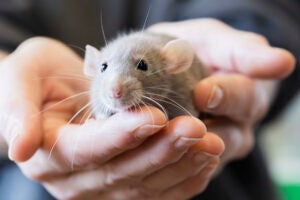Humane Society International / Canada
Region: Canada
Humane Society International / Canada

OTTAWA, Ontario—Wolf Awareness, WeHowl, Animal Justice, the International Fund for Animal Welfare, Humane Society International/Canada and Animal Alliance of Canada are applauding a decision by Health Canada’s Pest Management Regulatory Agency to cease the use of the poison strychnine for killing wild animals, including wolves, coyotes and black bears.
The decision to cancel the registration of products containing this dangerous poison follows years of advocacy and campaigning, including a request for special review of strychnine and other predacides filed by a coalition of groups in December 2020. Today’s decision reverses the PMRA’s initial proposal in August 2022 to allow the continued use of both strychnine and Compound 1080. That proposed decision was widely condemned by animal protection and conservation groups because of the cruel nature of these indiscriminate poisons and the serious harm that they cause to the environment.
Strychnine is notorious for causing some of the most agonizing symptoms of any poison, including muscular convulsions that can last up to 24 hours or longer before an animal finally succumbs to exhaustion or suffocation. Due to its gruesome nature, it featured prominently in Agatha Christie murder mystery novels.
In addition to the unnecessary pain the poison inflicts on its intended targets, it is known to recklessly kill hundreds of non-target animals each year, including companion dogs, birds of prey and endangered species. These animals suffer and die after consuming poison baits or from consuming the bodies of other poisoned animals.
“This decision is a huge victory for wild animals across Canada,” said Kaitlyn Mitchell, director of legal advocacy with Animal Justice. “Strychnine is among the most gruesome poisons in existence. We are thrilled that animals will no longer endure the agony of strychnine poisoning on the Canadian landscape.”
“Strychnine not only kills the intended wolves, coyotes, black bears and skunks,” said Hannah Barron, conservation director with Wolf Awareness. “It also kills countless other animals unintentionally, including golden eagles, lynx, ravens, grizzly bears and companion dogs, to name a few. Getting rid of this indiscriminate poison gets Canada one step closer to meeting its biodiversity targets under the Kunming-Montreal Global Biodiversity Framework.”
“There is a growing body of scientific evidence showing that lethal removal of large carnivores, including through poisoning, is not an effective way to reduce predation on livestock,” said Sadie Parr, organizer of WeHowl. “There are more effective ways to prevent conflicts, which are also more ethical and environmentally responsible. Many Canadians are already using such methods with success.”
“Canada’s use of strychnine to kill wildlife is an issue that attracted the attention of hundreds of thousands of concerned citizens in Canada and beyond. We are thrilled that Health Canada has reversed their previous decision, and finally canceled all uses of strychnine” said Sheryl Fink, director of Canadian wildlife issues with IFAW.
“I want to thank the Minister of Health and the folks at the Pest Management Regulatory Agency for banning the use of strychnine in Canada,” said Liz White, director of Animal Alliance of Canada. “No longer will this predacide be spread on the landscape indiscriminately killing wolves, coyotes and many other wild animals.”
“We are thrilled with Health Canada’s decision to ban this deplorable poison, which has no place in wildlife management,” said Kelly Butler, wildlife campaign manager at Humane Society International/Canada. “This ban will spare so many animals from horrific, prolonged and needless deaths and we commend the government for taking this step towards improving welfare outcomes for wildlife and removing poisons from Canada’s ecosystems.”
While the animal protection and environmental groups are relieved following PMRA’s decision to end the use of strychnine by September, it remains urgent for the PMRA to also ban Compound 1080, another poison also used to kill wolves and coyotes. It causes vomiting, convulsions, intense pain and hallucinations to animals who ingest it, and is unacceptably cruel.
Similar to strychnine, the effects of Compound 1080 can last hours or even days before an animal dies from cardiac failure or respiratory arrest.
According to a national Environics poll commissioned by Wolf Awareness, Animal Alliance and Animal Justice, 69% of Canadians say that the risks posed by strychnine and Compound 1080 used in Canadian wildlife management programs are unacceptable.
-30-
Media Contacts:
Sadie Parr
Wolf researcher/advocate and Organizer of WeHowl
250-272-4695
Hannah Barron
Conservation Director, Wolf Awareness
647-567-8337
Kaitlyn Mitchell
Director of Legal Advocacy, Animal Justice
647-764-8702
Sheryl Fink
Director, Canadian Wildlife Campaigns. IFAW Canada
519-830-0046
Kelly Butler
Wildlife Campaign Manager, Humane Society International/Canada
514 914-7607
Humane Society International / Canada
Prevent animals from suffering needlessly for human entertainment
New regulations also ban import of hunting trophies containing these parts
Humane Society International / Canada

OTTAWA, Ontario—The Canadian government has banned domestic trade in elephant ivory and rhino horn, as well as the import of hunting trophies containing these parts. The landmark measures fulfill a 2021 Ministerial mandate and are a critical step in protecting these iconic species. The move follows a seven-year campaign by Humane Society International/Canada and has overwhelming support from leading conservationists, animal protection groups, African nations and notable Canadians.
The African elephant population has declined by 96% over the last century, with scientists warning that they, as well as many rhinoceros species, could become extinct within the next few decades in the absence of global intervention to disincentivize poachers.
Those involved in the decision issue the following statements:
Steven Guilbeault, minister of Environment and Climate Change Canada, said: “Our government is committed to protecting, conserving and enhancing the world’s biodiversity, including reversing the global decline in elephant and rhinoceros populations. By strengthening Canada’s response to wildlife trafficking, we will enforce practical solutions that effectively address the illegal ivory trade and support species conservation. Canadians overwhelmingly support stricter controls and the Government of Canada is delivering.”
Kelly Butler, campaign manager for Humane Society International/Canada, stated: “Elephant and rhino populations have been decimated by global trade in their parts, and poaching causes considerable suffering to these incredible animals. In banning trade in elephant ivory and rhino horn, the Canadian government has shown considerable leadership and reflected the will of Canadians and the vast majority of African nations holding elephant populations. At last, Canadians can rest assured that our country is doing our part to ensure these majestic animals have a future.”
Dr. Winnie Kiiru, Kenyan biologist and leading elephant conservationist, said: “I am thrilled that Canada has enacted these urgently needed regulations in order to safeguard elephant and rhino populations. As a conservationist working on the ground in Kenya, I have seen firsthand the devastating effects of poaching and trophy hunting on African elephant and rhino populations. We need countries around the world to act now in order to protect these amazing animals, and Canada’s actions send an important message: ivory belongs to elephants.”
Dieudonné Yameogo, director of Wildlife and Game resources of Burkina Faso, stated: “Burkina Faso congratulates Canada on this historic decision. Canada follows in the footsteps of other countries, such as the USA, China, Hong Kong SAR and the EU, which have all closed or severely restricted their domestic ivory markets in recent years. This sends a very strong message to all traffickers and poachers: ivory has no market value, anywhere in the world! These measures taken by these various countries could lead to a significant drop in illegal elephant killings in all African elephant range states, and particularly in Burkina Faso.”
Bryan Adams, order of Canada recipient and one of the best-selling musicians of all time, stated: “As a long-time animal advocate, I am thrilled that Canada has listened to the overwhelming number of Canadians who demanded action to end the senseless killing of elephants and rhinos. The policies enacted by the Canadian government set a powerful precedent for countries around the world to join the fight to protect elephants and rhinos.”
Robert Bateman, renowned Canadian artist and conservationist, stated: “I have had the great privilege of observing wild African elephants and, like so many other Canadians, I am devastated by the prospect of their extinction and their ongoing suffering at the hands of humans. The survival of African elephants and rhinos hinges on the actions of the global community, and I commend Canada for enacting meaningful policies to safeguard these amazing animals for generations to come.”
The creators of The Anthropocene Project (Edward Burtynsky, Jennifer Baichwal and Nicholas de Pencier), who documented the largest elephant ivory burn in history, which took place in Kenya in 2016, stated: “The poaching of elephants for ivory—from which international criminal syndicates profit—and the ensuing decimation of African elephant populations is tragic. Witnessing Kenya’s ivory burn was a very powerful moment for all of us and a shocking reminder of the scale at which elephants are being slaughtered, day after day, year after year. We commend the Canadian government for ending its role in this terrible, destructive industry which perpetuates the devastation of elephant and rhino populations.”
Fran Duthie, president of Elephanatics, stated: “The team at Elephanatics is thrilled that regulations to ban the elephant ivory and rhino horn trade, along with the import of hunting trophies containing these parts, are to be enacted by the Canadian Government. We would like to thank all the scientists, NGOs, politicians and people who worked tirelessly to make this happen. From the petition created by the Ivory Free Canada coalition that reached over 700,000 signatures and showed overwhelming support to save elephants and rhinos, to endless advocacy, to the collaboration of like minds working together to save a species, our mission to ban the elephant ivory and rhino horn trade has come to fruition. It is a time to be grateful and to celebrate this grand achievement. We did it!”
Facts:
- As many as 25,000 elephants and 1,300 rhinos die at the hands of poachers in Africa every year.
- In March 2021, the IUCN updated its Red List of Threatened Species and declared the African forest elephant to be Critically Endangered and the African savanna elephant to be Endangered. Black rhinos, found in Africa, are classified as Critically Endangered.
- Canada’s top trading partners, including the United States, China and the United Kingdom, have closed their elephant ivory markets in response to declining elephant populations.
- According to CITES data, over 450 African elephant tusks, 16 rhino horns, and an additional 81 elephant trophies and 44 rhino trophies were legally imported into Canada from 2010-2021.
- In June of 2021, an open letter calling for an end to elephant ivory trade in Canada was signed by notable Canadians including Bryan Adams, Robert Bateman and David Suzuki.
- The proposed regulations follow a public opinion consultation conducted by Environment and Climate Change Canada in the summer of 2021, in which Canadians and people from around the world overwhelmingly voiced their support for federal action to end Canada’s role in the elephant ivory trade.
- According to a 2020 poll by Insights West, 94% of Canadians support an elephant ivory trade ban.
- A public petition calling for a Canadian ban on elephant ivory trade amassed over 700,000 signatures.
ENDS
Media contact: HSI/Canada: Dominique Davidson, senior communications officer: ddavidson@hsi.org, 438-951-0350
Humane Society International / Canada
Urge Canada to pass Bill C-355 and stop allowing thousands of live horses to be flown to Japan to be slaughtered for meat
Humane Society International / Global
Urge Canada to stop allowing thousands of live horses to be flown to Japan to be slaughtered for meat
Humane Society International / Canada
An “ag-gag” bill would make it hard to expose cruelty to animals on farms
Groundbreaking regulations would also ban imports of certain hunting trophies
Humane Society International / Canada

MONTREAL—Humane Society International/Canada applauds Environment Canada for moving another step forward in closing the Canadian market to elephant ivory and rhino horn trade. Proposed regulations which would prohibit elephant ivory and rhino horn trade in Canada, along with imports of hunting trophies made from these parts, have been published in Gazette I. HSI/Canada encourages all Canadians to sign our letter in support of the measures, which will be submitted to government during the 30-day public consultation.
Kelly Butler, wildlife campaign manager, Humane Society International/Canada, stated:
“Elephants and rhinoceros could be extinct within our lifetimes if urgent action is not taken to save them. We commend the Canadian government for showing global leadership in protecting these iconic species for future generations. Canadians have made it clear that there is no place for elephant ivory and rhino horn trade, nor hunting trophies from these species, in our country. HSI/Canada strongly supports the regulations as they are published in Gazette I, which would become the global standard for elephant and rhino protection in non-range states.”
The proposed regulations follow years of campaigning by HSI/Canada and our coalition partners, along with the support of scientists, public figures and hundreds of thousands of concerned individuals. In its 2021 mandate letter, the federal government responded with a commitment to “curb illegal wildlife trade and end elephant and rhinoceros tusk trade in Canada.”
Critically, the regulation aligns with the directives of the foremost elephant and rhino conservation experts and stakeholders: The African Elephant Coalition (representing 78% of African countries holding elephants), the Convention on International Trade in Endangered Species of Wild Fauna and Flora and the International Union for the Conservation of Nature have all called for the closure of domestic ivory markets.
According to a 2020 poll by Insights West, 94% of Canadians support an elephant ivory trade ban. A public petition calling for a Canadian ban on elephant ivory trade has amassed over 700,000 signatures.
Publication in Gazette I, the government of Canada’s newspaper, is one of the final stages in creating new regulations. Once proposed regulations are published in Gazette I, they are subject to a consultation and amended based on feedback, if necessary, then published in Gazette II as official regulations.
Quick Facts:
- As many as 25,000 elephants and 1,300 rhinos die at the hands of poachers in Africa every year.
- In March 2021, the IUCN updated its Red List of Threatened Species and declared the African forest elephant to be Critically Endangered and the African savanna elephant to be Endangered. Black rhinos, found in Africa, are classified as Critically Endangered.
- Canada’s top trading partners, including the United States, China and the United Kingdom have closed their elephant ivory markets in response to declining elephant populations.
- In addition to elephant ivory trade, Canada allows the import of elephant tusks, rhino horns, and parts from trophy hunts. According to CITES data, over 450 African elephant tusks, 16 rhino horns, and an additional 81 elephant trophies and 44 rhino trophies were legally imported into Canada from 2010-2021.
- In June of 2021, an open letter calling for an end to elephant ivory trade in Canada was signed by notable Canadians including Bryan Adams, Robert Bateman and David Suzuki.
- The proposed regulations follow a public opinion consultation conducted by Environment Climate Change Canada in the summer of 2021, in which Canadians and people from around the world overwhelmingly voiced their support for federal action to end Canada’s role in the elephant ivory trade.
ENDS
Media contact: Michael Bernard: 438-873-5769; mbernard@hsi.org
Minister Duclos joins animal protection coalition and cosmetics industry in celebrating passage of landmark legislation
Humane Society International / Canada

OTTAWA, Ontario―Cosmetics animal testing and trade will officially be banned in Canada, after the Canadian government today passed measures through the Budget Implementation Act (Bill C-47). In addition to banning cosmetics animal testing, the amendments will also prohibit selling cosmetics that rely on new animal testing data to establish the product’s safety, and false or misleading labelling pertaining to the testing of cosmetics on animals.
Animal protection advocates Humane Society International/Canada, Animal Alliance Canada and Cruelty Free International, together with Cosmetics Alliance Canada, Lush Cosmetics, and The Body Shop, have been working closely with the Canadian government for several years to advance workable legislation to ban cosmetics animal testing in Canada. The coalition is thrilled that Canada will now join over 40 jurisdictions and major markets that have already passed laws to end or limit cosmetics animal testing and/or sales.
The coalition joined the Canadian Health Minister Jean-Yves Duclos in issuing the following statements:
Jean-Yves Duclos, Minister of Health, Government of Canada, said: “Testing cosmetics on animals is both cruel and unnecessary. That is why we are proud to move forward on our promise to ban cosmetic animal testing and trade. Protecting animals now and in the future is something many Canadians have been advocating for and now, we can all be assured that cosmetics in Canada are cruelty-free, and we will continue to take all necessary measures to improve animal welfare. ”
Michael Bernard, deputy director, Humane Society International/Canada, said: “With the passage of these historic measures to ban cosmetics animal testing and trade, Canada is getting a cruelty-free makeover. We are so thrilled that our government has listened to the millions of Canadians who want the products they buy to be cruelty-free. This legislation truly shows the great things that can happen when government, industry, the non-profit sector and the public work together to create a better future. Canadian consumers can finally rest assured that the cosmetics they purchase have not come as a result of animal suffering—and that is something we can all feel good about.”
Darren Praznik, president and CEO of Cosmetics Alliance Canada, said: “Industry and animal protection advocates have worked together over the last several years to advance a cosmetics animal testing ban in Canada. Since this issue was first raised in Parliament through a Private Member’s Bill in the Senate in 2015, our group has met frequently to build a collaborative relationship and to align on the principles with Health Canada while ensuring the ban works within the Canadian regulatory framework. We are very pleased to see the government pass this long overdue legislation.”
Liz White, director, Animal Alliance of Canada, said: “Animal Alliance supporters thank Minister Duclos and Health Canada staff for making the cosmetics animal testing ban a reality. Canada will join the growing number of countries worldwide that have ended such practices and the government will fulfill its promise to introduce legislation to end cosmetics testing on animals as soon as 2023.”
Monica Engebretson, head of public affairs North America, Cruelty Free International, said: “Cruelty Free International applauds the Canadian Government for taking action to fulfil the wishes of the vast majority of Canadian citizens who supported a ban on animal testing for cosmetics. This has been a unifying issue that has earned cross-party support in Canada and will match the progress we are seeing around the world as consumers, companies, regulators and advocates come together to achieve a common goal of ensuring that animals won’t suffer for the sake of cosmetics anywhere.”
Brandi Halls, chief ethics officer, Lush Cosmetics North America, said: “As a company that has been campaigning to bring animal testing for cosmetics to an end since our inception over 25 years ago, today we join all of the stakeholders in celebrating this important moment for the global movement. By heeding the call of people across Canada, Minister Duclos and Health Canada are putting Canada on the right side of history by banning this outdated practice. We’re proud to have partnered with Humane Society International for over a decade and through customer responses to our in-shop campaigning, we know that the voice of the majority has been heard.”
Hilary Lloyd, vice president of marketing and corporate responsibility, The Body Shop North America, said: “Since the launch of The Body Shop’s first against animal testing initiative in 1989 and our campaigns that have followed, we’re thrilled to finally see this effort materialize in Canada. We applaud Minister Duclos and Health Canada for bringing forth this legislation and thank all who have made this change possible, notably our partners at Cruelty Free International and The Body Shop’s passionate retail teams and activist customers, who delivered over 625,000 signatures to Parliament Hill in 2018 calling for this change.”
END
Media contacts:
- Michael Bernard, HSI/Canada, deputy director, mbernard@hsi.org
- Susan Nieuwhof, Cosmetics Alliance Canada, public policy and communications, snieuwhof@cosmeticsalliance.ca
Humane Society International/Canada applauds the passage of historic measures in Bill S-5 to amend the Canadian Environmental Protection Act
Humane Society International / Canada

OTTAWA—Humane Society International/Canada is celebrating the passage of amendments to the Canadian Environmental Protection Act, aimed at phasing out the use of animals for chemical toxicity testing in Canada. The measures were included in Bill S-5, to amend the Canadian Environmental Protection Act, which passed third and final reading in the Senate today and will now receive Royal Assent.
Shaarika Sarasija, senior strategist, research and regulatory science for HSI/Canada, stated: “We are happy to see the passage of Bill S-5 with provisions to phase out chemical testing using animals. A concerted move away from animal-based toxicity tests could spare tens of thousands of animals each year and advance public health and environmental protection with more advanced and relevant tests for the benefit of all Canadians.”
Conventional toxicity testing involves poisoning rats, mice, rabbits, fish, birds and other animals with chemicals via force-feeding, inhalation or skin absorption for days, months or even years without pain relief, to see the extent to which it disrupts normal bodily functions. According to the Canadian Council on Animal Care, half of the more than 150,000 animals used for regulatory testing in Canada in 2021 experienced anywhere from “moderate to severe distress” to “severe pain near, at or beyond the pain tolerance threshold.” Many of these tests were developed decades ago and represent outdated science that provides incomplete or inconclusive data at best, while inflicting needless animal suffering.
Today’s toolbox of non-animal methods includes an array of sophisticated molecular biology tests that are more time and cost efficient and human relevant. The amendments in Bill S-5 promote their use, paving the way to reducing and ultimately eliminating animal suffering in chemical toxicity testing through technological progress. The new measures include:
- Requiring new approach testing methods that do not use animals where scientifically justified and “practicable.”
- Encouraging the timely development and implementation of alternative methods to animal testing.
- Requiring the government to publish a plan, within two years, detailing steps to achieve these goals.
HSI/Canada is committed to working alongside the Government of Canada and other stakeholders to ensure that all use of animals in toxicity testing—including for pesticides, food and other regulated products—is ultimately relegated to the history books. Furthermore, HSI/Canada will work with these stakeholders to ensure that faster, more effective and relevant new approach methods that do not involve animals are developed and implemented within the Liberal government’s stated timeline of ending all toxicity animal testing by 2035.
ENDS
Media contact: Michael Bernard, deputy director for HSI/Canada: 438-873-5769; mbernard@hsi.org
